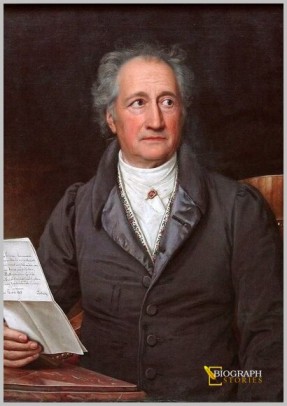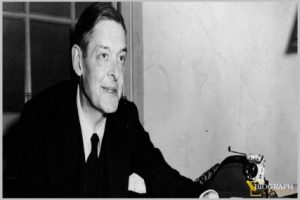
Johann Wolfgang von Goethe Quick Fact:
Born: 28 August 1749, Free Imperial City of Frankfurt, Holy Roman Empire
Died: 22 March 1832 (aged 82), Weimar, Grand Duchy of Saxe-Weimar-Eisenach, German Confederation
Occupation: Poet, novelist, playwright, natural philosopher, diplomat, civil servant
Nationality: German
Alma mater: Leipzig University, University of Strasbourg,
Literary movement: Sturm und Drang, Weimar Classicism, Romanticism in science
Spouse: Christiane Vulpius, (m. 1806; died 1816)
Biography of Johann Wolfgang von Goethe:
The supreme genius of modern German literature, Johann Wolfgang von Goethe was a key personality in the list of German writers and polymaths. His literary works were epic and his writing style was different. He contributed to botany and anatomy also. He was quite conservative and a devout Christian but he strongly opposed many doctrines of the Christian churches and said that there were many differences between Christian theology and the teachings of Jesus Christ. Goethe was also work for politics. The works of Johann Wolfgang von Goethe inspired many well-known philosophers such as Friedrich Hegel, Carl Jung and Ludwig Wittgenstein.
Childhood & Early Life of Johann Wolfgang von Goethe:
On 28 August 1749, Johann Wolfgang von Goethe was born in the city of Frankfurt. Goethe was born to Johann Caspar Goethe and Catharina Elisabeth Goethe and all of his siblings except his sister Cornelia Frederica Christiana died at a very early age. At that time, his father and private tutors, in all-important subjects, gave him lessons. He trained at dancing, riding, as well as fencing and he was taught Latin, Greek, French, Italian, English and Hebrew. He had a strong attachment for drawing and literature from his early age. He also developed an interest for theatre when he was amazed by puppet shows. He known several Frankfurt actors as well. He started studying law at Leipzig University in 1765. He spent three years there; however, he developed a severe dislike for age-old judicial rules. In 1768, Goethe returned to Frankfurt and he fell severely ill. During this time because of some reasons, Goethe and his father’s relationship also became bitter.His mother and sister nursed him back to health. After his recovery, he left Frankfurt for finishing his studies in the University of Strasbourg. Along with his main studies, he also attended history, political science, anatomy, surgery, and chemistry lectures. He was acquainted with a renowned philosopher and poet, Johann Gottfried Herder , became close friends and used to meet quite often for discussions.
Career of Johann Wolfgang von Goethe:
“Annette”, first poem collection of Johann Wolfgang von Goethe released in 1770. Nevertheless, he chose to remain unknown. He wrote many literary works in the following years but threw away almost all of them except for “Die Mitschuldigen”, a comedy. ‘Auerlachs Keller’, one of the oldest restaurants in Germany, impressed him so much that in his closet drama “Faust Part One”, this restaurant was the only real place mentioned. By the end of August 1771, he acquired his academic degree. He started a small legal practice of his own. He had a goal in his mind, which was to make the legal system more humane. However, just a few months later, his career as a lawyer ended because of his inexperience and could not win his cases. During this time, he was also continue his literary plans and wrote “Goethe von Berlichingen”. It represented his hope for a world with freedom that is more intellectual. After the success of his previous work, He wrote a novel based on his unrequited love for his friend’s fiancée, Charlotte Buff. The name of the novel was “The Sorrows of Young Werther”. At the age of just 25, this work gave him a huge success and brought him worldwide fame. Johann Wolfgang von Goethe was invited to the court of Carl August, Duke of Saxe-Weimar-Eisenach in 1775, for his growing success and fame. In the following year, he also granted the citizenship of Weimar. He spent most of his life in Weimar. He was also a close friend of the Duke, and assisted him in court matters. Later in 1786, for a two-year long tour, he moved to Italy. For him this journey was like a pilgrimage. It has contributed much to his philosophical development. Then he wrote the non-fiction “Italian Journey”, and it covers the first year of his visit. This work became an inspiration for many other German youths to follow Goethe’s example for the next few decades. In 1792, in the Battle of Valmy, Goethe assisted the Duke against the failed French invasion and after 1793; he decided to devote his rest of the life to literature. His play “Faust” is usually considered to be the greatest piece of work in German literature. This tragic play divided into two parts, published in 1808 and 1832 respectively.
Personal Life & Legacy of Johann Wolfgang von Goethe:
Johann Wolfgang von Goethe had and Christiane Vulpius were in a relationship for several years. However, the couple were not married, but they had several children including a son named Julius August Walter von Goethe. The couple finally married in 1806 after living together for several years. In 1816, after his wife, Christiane Vulpius’s death, he fell in love with another woman named Ulrike von Levetzow. However, he never proposed to Ulrike von Levetzow. Goethe breathed his last in Weimar; he died of a heart attack on March 22, 1832, sitting in his armchair in the modest little bedroom beside his study. He buried in the Ducal Vault, at Weimar’s Historical Cemetery.
Notable Works of Johann Wolfgang von Goethe:
- The Sorrows of Young Werther
- Faust
- The Erl-King
- Egmont
- Wilhelm Meister’s Apprenticeship
- Götz von Berlichingen
- Torquato Tasso
- Clavigo
- Auf dem See
- Venetian Epigrams








